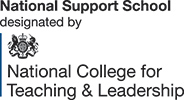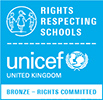Complex needs statement
At Manor Green, we recognize that children with complex needs reach their potential and experience happiness when their environment, learning, communication, and routines are organized and tailored to their unique requirements.
We uphold that maintaining consistent teaching methods and structured classroom settings promotes independence and active participation in learning for our pupils. As such, in all complex needs classes, we will establish the following structures, approaches, and routines to maintain consistency and success for all our children.
Classroom Environment
The classroom environment prioritizes tidiness and organization to minimize distractions and facilitate learning. The class team is responsible for setting up and tidying resources to help children focus during activities. Classroom cupboards are kept neat for easy access to resources, maximizing time with children. Motivating resources are personalized to children's interests and refreshed regularly. Each classroom includes a designated teaching area with soft chairs around an interactive whiteboard (IWB) for whole class/small group instruction. Tables and screens structure 1:1 areas for focused learning. Adults model play skills and encourage expressive communication throughout the school day.
Visual Supports
In complex needs classes, children will access visual timetables or individual schedules to understand current and upcoming activities. These schedules, created by the class team, outline the child's day and aid transitions between activities. Using symbols from Communicate in Print, schedules are followed from top to bottom, with symbols removed when activities end. Aided Language Displays (ALDs), symbols, and choice boards are utilized across teaching activities to enhance understanding and promote expressive communication, aligning with the Total Communication Policy.
Daily Structure
On arrival to school children will enter into a stimulating and creative classroom environment. Activities will be set out that develop children’s play, communication and PSHE knowledge and understanding. Individual children will access sensory circuits as part of their personalised sensory integration programmes during this welcome period.
After all the children have arrived a good morning session will take place as a more structured welcome to the day. Activities will then follow a work/ choosing format with session lengths varying to meet the needs of the children. Whole class activities will personalised to the children’s needs and be no longer than a suggested 20 minutes. Activities will be resourced to the highest standard with stimuli that are motivating, mindful of the children’s interests and changed regularly to keep the children motivated and engaged.
Snack and playtimes make a natural break in the morning session and the afternoon session will be personalised by the class teacher into two or more activities. At the end of the day the children will have opportunities to access calming activities alongside opportunities to request for high motivators to form a ‘golden or choosing time’. Some children may need to access a calming reflective activity after lunch in order to be able to engage in learning activities in the afternoon whereas others may need to participate in an alerting or organising activity to meet their individual sensory needs. This reflective activity should provide opportunities for the children to reflect on their own learning using music, photographs and rewards.
Teaching and Learning
Lessons are structured and personalised. The complex needs classes maintain whole school values, ensuring all children participate in school experiences like whole school activities, playtimes and assemblies as appropriate. Independence is promoted using visual supports, key words, signs, and direct language, with children encouraged to transition between activities using schedules or visual timetables. Learners have opportunities for independent work following a structured teaching approach, with clear work systems. Children gradually learn to request adult checks on their work as a step towards self-assessment as their skills develop.
Curriculum
Children in specialist classes follow a curriculum that is relevant, broad and balanced to their needs. Each class follows a thematic approach to teaching and learning which changes half termly. More detailed information on topics, themes and content can be found under the Long Term Plan section of our website.
Physical and Personal, Social, Health and Emotional
(PSHE) Development
Children also work towards independence in eating and drinking, personal care (toileting, dressing) as identified through their PSHE targets.
In addition, children have access to a multi-sensory programme including use of the light and sound room, sensory circuits, outdoor learning environments and soft play. All children have personal, social and emotional targets which help develop skills in expressing and exploring likes and dislikes, high interests and friendships with others.
Individual children are assessed by the Occupational Therapist for sensory integration programmes which are implemented through-out the school day. Hydrotherapy and rebound are key strategies used to develop physical, social and communication skills.
Home/ school communication
Communication between home and school is highly valued and class teachers will develop a system that shares the following information;
- Annually – At the Annual review a report with attainment levels of the child’s academic for the prior academic year.
- Annually – In the Summer Term a detailed report with academic and personal achievements from the current academic year.
- Annually – A ‘blue book’ photograph record of the children’s key achievements and attainment levels for the current academic year
- Ongoing assessment records, including annotated photographs will be shared at any time on request from parents/carers
- Thrice annually – parent/carer consultations with a focus on discussing personal, social, emotional and behavioural developments, challenges and achievements
- Termly – a topic web detailing the learning for that terms topic for core and foundation subjects
- Timetables – to share the child’s daily, weekly and termly routines
- Weekly – an overview of learning activities and weekly focus’
- Daily – written information on child’s reactions/ achievements and responses to each activity, as well as information on eating and drinking, toileting and behaviour as appropriate
- As required – phone calls or informal parents meetings to discuss specific behaviours, challenges or needs.
- As required – parent/carer workshops
Behaviour and Personalised Learning
Identified children will have clear, concise and appropriate behaviour plans which will clearly show a photograph of the child, be signed by parents, displayed and shared in class teams and whole school meetings and saved on the server. Behaviour plans will be regularly reviewed and updated. Behaviours will be tracked and monitored using adapted behaviour recording systems which allow teachers and the lead for behaviour to look for patterns, triggers and strategies.
Learning should be personalised for all children, with some children needing 1:1 support following a highly personalised routine. These daily learning plans will always follow the same core routine, with shortened activity lengths, regular changes of location and adults. Class teachers will think systematically and creatively to produce organised timetables that maximise all the learning environments available including the outdoor areas.








